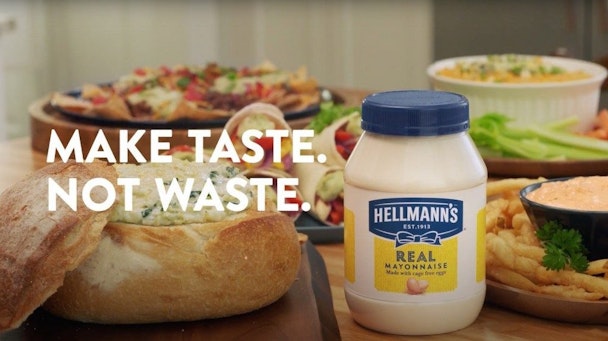Why Unilever thinks purpose is pointless for some brands
The Drum’s founder, Gordon Young, wonders whether Unilever has lost its real purpose in pursuit of ESG.

With an advertising spend approaching $8bn and a ranking in the top three or the world’s biggest marketing spenders, Unilever is undoubtedly a trendsetter.
In 2019, under the stewardship of Alan Jope, it embraced the purpose agenda, decreeing that all brands from Knorr Stock Cubs to Marmite should stand for something.
It set the tone for a rush to purpose across the marketing sector - as others followed suit, citing evidence that consumers demanded that their relationship with brands went beyond the transactional. Consumers wanted their mayonnaise, for example, to align with their values. Any brand that embedded a value-led approach into strategy was awarded higher sales and loyalty. Or were they?
Fast forward four years and Jope has been deposed by unhappy shareholders who grumbled he took his eye off the ball, depressing their returns in the process. And in his place is new CEO Hein Schumacher, who was seemingly putting profit before purpose yesterday.
He said that for some brands, at least, a social mission “simply won’t be relevant, or it will be an unwelcome distraction.” Adding: “I believe that social and environmental purpose is not something we should force fit on every brand.”
Terry Smith, one of Britain’s best-known investors, will agree. A Unilever shareholder was particularly outspoken about the strategy that evolved under Jope, describing it as ‘virtual signaling.’
Explore frequently asked questions
He said in January, “A company which feels it has to define the purpose of Hellman’s mayonnaise has, in our view, clearly lost the plot.”
So, is this evidence of the world’s peak purpose? Will this development permit other brands to return to their core mission of money-making?
There is no doubt there is a correction taking place. Several factors are conspiring to concentrate minds. They include:
Reputational risk. Taking a stance on some issues is no longer risk-free for brands, as many of the central premises of purpose become contested. NatWest Bank, Bud Light and Web Summit are three organizations that destroyed value by becoming embroiled in controversy. Unilever brand Ben & Jerry’s is another cautionary tale after it tried to ban its products in the occupied Palestinian Territories in 2021, sparking a major row. The ice-cream brand has been silent on the current crisis.
Advertisement
Economic and political uncertainty. This has changed the priorities of both consumers and brands. With energy security under threat, many see demands by the likes of Just Stop Oil as reckless. And, of course, it is hard for corporates to talk about inclusivity when they may need to exclude some of their staff members through redundancy. With a cost of living crisis, in today’s world price could trump purpose. Other brands, like Victoria’s Secret, also believe their focus on body positivity has had a negative impact on sales. Its messaging now focuses on fun, which may be more seductive in these dreary times.
Consumer cynicism. Other research suggests consumers are fed up with coming across messages about world problems on their food cartons. And many do not see brands as the best people to lecture them as they are deemed to be very much part of the problem. If Unilever truly believes, some may say, in saving the planet, maybe it should stop producing many of the brands that clutter up every shower stall in the developed world, or better still, close down completely! (not my view, obviously).
Advertisement
Elsewhere, there are also signs of a correction. The financial markets seem to be turning their backs on environmental, social and governance (ESG) metrics to focus on old-fashioned profit.
Ashely Kelty, head of oil and gas research and Panmure Gordon, said: “People want companies to stick to what they are supposed to be doing. Shareholders are saying: ‘We don’t care which causes you support. We want to make money’.”
But if the world did become too purpose-focused, there could be a danger that the pendulum may now be about to swing too far back the other way.
Because purpose can pay, you need to look no further than Unilever for evidence. For example, there is little doubt that its strategy around Dove has not only tackled critical social issues but helped double brand sales on one level while maintaining a category-beating margin. I note that it has just launched a new partnership with Nike to encourage more young women to engage in sports, another brilliant iteration of the strategy.
Through the passion that purpose arouses, there are certain inalienable fundamentals. As Dove proves, purpose can help the world and help businesses if the cause is authentic, relevant and part of a long-term strategy.
Suggested newsletters for you
However, a strategy based on how a product directly solves a problem for a consumer is also legitimate. And I do agree with Smith’s analysis; people do not expect every product to save the world.
But a key point to remember is that profit-making is the most socially responsible thing a business can do. That way, they help their customers, create employment and contribute to the tax base. That allows the community as a whole to take steps to make the world a better place.

